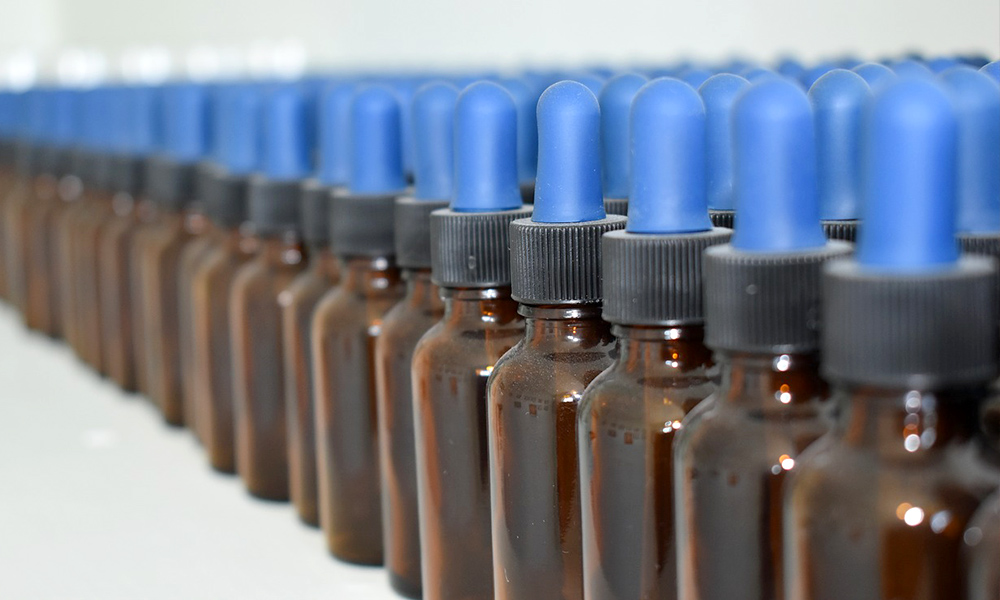 Counterintuitively, the world's top legal cannabis producer, the United Kingdom, is now importing its first shipments of medicinal cannabis prodccts, from Canada and the Netherlands. This is an advance for the UK medical marijuana program, but a proverbial case of "coals to Newcastle"—pointing to the paradoxes of cannabis globalization.
Counterintuitively, the world's top legal cannabis producer, the United Kingdom, is now importing its first shipments of medicinal cannabis prodccts, from Canada and the Netherlands. This is an advance for the UK medical marijuana program, but a proverbial case of "coals to Newcastle"—pointing to the paradoxes of cannabis globalization.
The United Kingdom's new medical marijuana program passed two significant mileposts last week—importation of a shipment of cannabis oil from Canada, and its first-ever shipment of bulk herbaceous cannabis, from the Netherlands.
Aurora Cannabis, one of Canada's top licensed producers of medical marijuana, announced that it had completed its first commercial export of cannabis oil to the UK, and the product had been "successfully dispensed from a pharmacy."
British authorities recently gave Aurora official approval for its first shipment of medical cannabis into the UK under the new legal framework for medical marijuana that came into effect in November. Under the new program, physicians can legally issue prescriptions for cannabis and cannabis-based medicines.
"Being one of the first Canadian companies to commercially supply cannabis-based medicines into the UK under the new legal framework reflects Aurora's ability to do business in international markets that have complex and evolving regulatory systems," said Neil Belot, the company's chief global business development officer, in a press release.
"Aurora continues to grow its international footprint, which now includes the UK, a country with a population of approximately 66 million people," Belot continued. "Regardless of the barriers we may be faced with, we are focused on helping patients around the world get access to the medicine they need."
Dr. Shane Morris, Aurora's senior vice president of product development and regulatory affairs, added: "We are thrilled to have successfully navigated the complexities of the UK's new regulatory framework to be able to supply high quality, pharmaceutical grade cannabis-based medicines into the UK from one of our EU-GMP certified facilities in Canada." (This is a reference to the European Union's Good Manufacturing Practice standards.)
Headquartered in Edmonton, Alberta, Aurora is among the most globally ambitious of Canada's licensed producers, with operations in 22 countries across five continents. Aurora bills itself as "vertically integrated and horizontally diversified across every key segment of the value chain, from facility engineering and design to cannabis breeding and genetics research, cannabis and hemp production, derivatives, high value-add product development, home cultivation, wholesale and retail distribution."
Great expectations were raised last year following Aurora's acquisition of Uruguay's ICC Labs, which has ambitions to export cannabis oil throughout Latin America and beyond.
First import of herbaceous cannabis
Also last week, Britain received its first shipment of actual herbaceous cannabis, similarly approved under the medical program and similalry to be available to patients through registered pharmacies. The 800 kilograms was grown in the Netherlands for the firm European Cannabis Holdings, and exported under the auspices of the Dutch Office of Medicinal Cannabis. Two British firms, Grow Biotech and IPS Specials, teamed up to faciliate the import.
In a joint press release, the three companies said that the shipment includes two patented strains, Bedrocan Flower Afina, and Bedica Flower Talea, which were developed to treat a range of conditions including chronic pain and multiple sclerosis.
Dr. David McDowell, who sits on the medical board of European Cannabis Holdings, said: "The fact that we are now in a position to write prescriptions that can actually be fulfilled is a huge achievement. Patients no longer need to worry about how they can access their medication, which will mark a positive step change in their journey and finally provide the relief that they are looking for, and we can now finally provide."
The proverbial coals to Newcastle
There is a certain irony to these developments, which points to the paradoxes of cannabis globalization. Last year, a study by the United Nations' International Narcotics Control Board brought back the surprise finding that planet Earth's biggest producer of legal cannabis is none other than the staid United Kingdom—where, until pressure from parents of ailing children finally brought about November's policy change, no form of medical marijuana was even legally available.
The answer to this seeming anomaly lies in one UK-based multinational corporation with industrial-scale grow operations for production of pharmaceutical products. This is GW Pharmaceuticals, which has massive greenhouse operations at a former tomato farm in Norfolk, along the North Sea coast of East Anglia.
GW last year won attention as producer of Epidiolex, a cannabinoid-based treatment for seizures related to epilepsy. This was approved for sale in the United States, marking a watershed in the acceptance (at least) of CBD-based medications by the regulatory bureaucracy.
It was Britain that gave the world the witty little idiom "bringing coals to Newcastle"—a reference to the town in North East England which was traditionally the heart of the country's coal industry. It refers to any seemingly pointless activity. But where cannabis is concerned, the UK is now doing exacttly that, due to a kind of accident of history: Despite now having an officially more liberal oversight regime than Canada, the UK's domestic production is still geared toward pharmaceuticals—not extracts, oils, or tinctures, much less actual herbaceous cannabis as a final product.
Until British industry catches up with the law, this is good news for Aurora and it global designs.
Photo via Pixabay







Recent comments
2 weeks 3 days ago
2 weeks 3 days ago
5 weeks 4 days ago
6 weeks 3 days ago
10 weeks 4 days ago
14 weeks 2 days ago
18 weeks 2 days ago
19 weeks 1 day ago
29 weeks 1 day ago
33 weeks 1 day ago